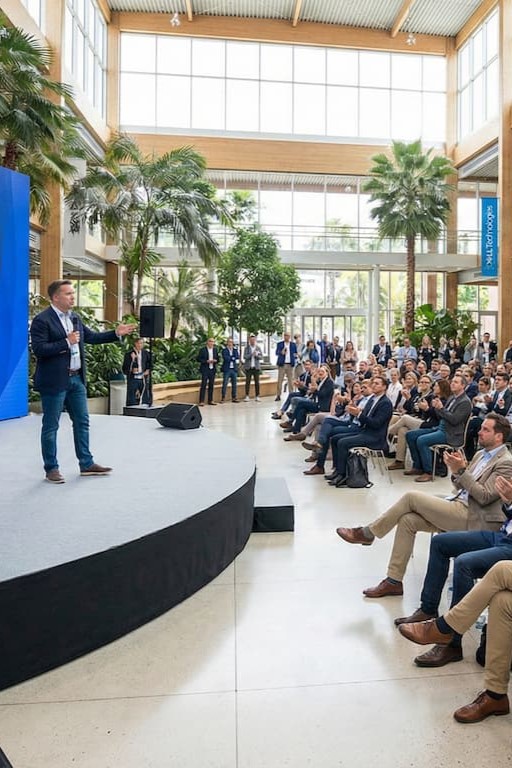Dan Charles
06/10/2025
Table of Contents
Meta just rolled out a feature that fundamentally changes how event businesses should think about their advertising. It’s called incremental attribution, and it validates something we’ve known for years: if you’re optimizing your Meta ads for first-booking profitability, you’re training the algorithm to find the wrong clients.
Key Takeaways
- First-order profitability thinking kills growth in event businesses because your first booking is almost always your least profitable transaction
- Meta’s incremental attribution measures which customers wouldn’t have booked without your ads, aligning perfectly with lifetime value optimization
- W-shaped attribution (30-30-30-10 across touchpoints) gives you the complete picture that single-touch attribution misses
- First-party tracking and CRM infrastructure aren’t optional—they’re the foundation for feeding Meta’s algorithm the right data
- ROAS is a vanity metric for event businesses; real profitability comes from client lifetime value, repeat bookings, and referrals
The First-Order Profitability Trap
Here’s the pattern I see constantly. An event business owner starts running Meta ads. They get a few bookings, pull up the calculator, look at that first booking profit, and if it doesn’t work immediately—they panic.
They kill the campaign, slash prices, or constantly test new offers hoping something converts profitably on day one.
I get it. When you’re running a business, you want returns fast.
But here’s the reality: in event businesses, your first booking is almost always your least profitable one.
Think about what goes into acquiring a new event client:
- Higher acquisition costs because you’re building trust from zero
- More consultation time and proposals
- Higher delivery costs as you learn their preferences
- Significantly more hand-holding through the process
Now here’s what makes event businesses fundamentally different from e-commerce: your clients don’t book once and disappear.
Corporate event planners book multiple times per year. Venue clients come back for different event types. Service providers get repeat business and referrals.
The lifetime value of a good event client can be 3x, 5x, even 10x that first booking.
But most event businesses run Meta ads like they’re selling a one-time product.
That’s the disconnect killing your growth.
When you optimize purely for first-order profitability, Meta’s algorithm learns to avoid high-value clients because they look “too expensive.” You’re inadvertently training it to bring you price shoppers, one-time buyers, and high-maintenance clients who convert fast but disappear faster.
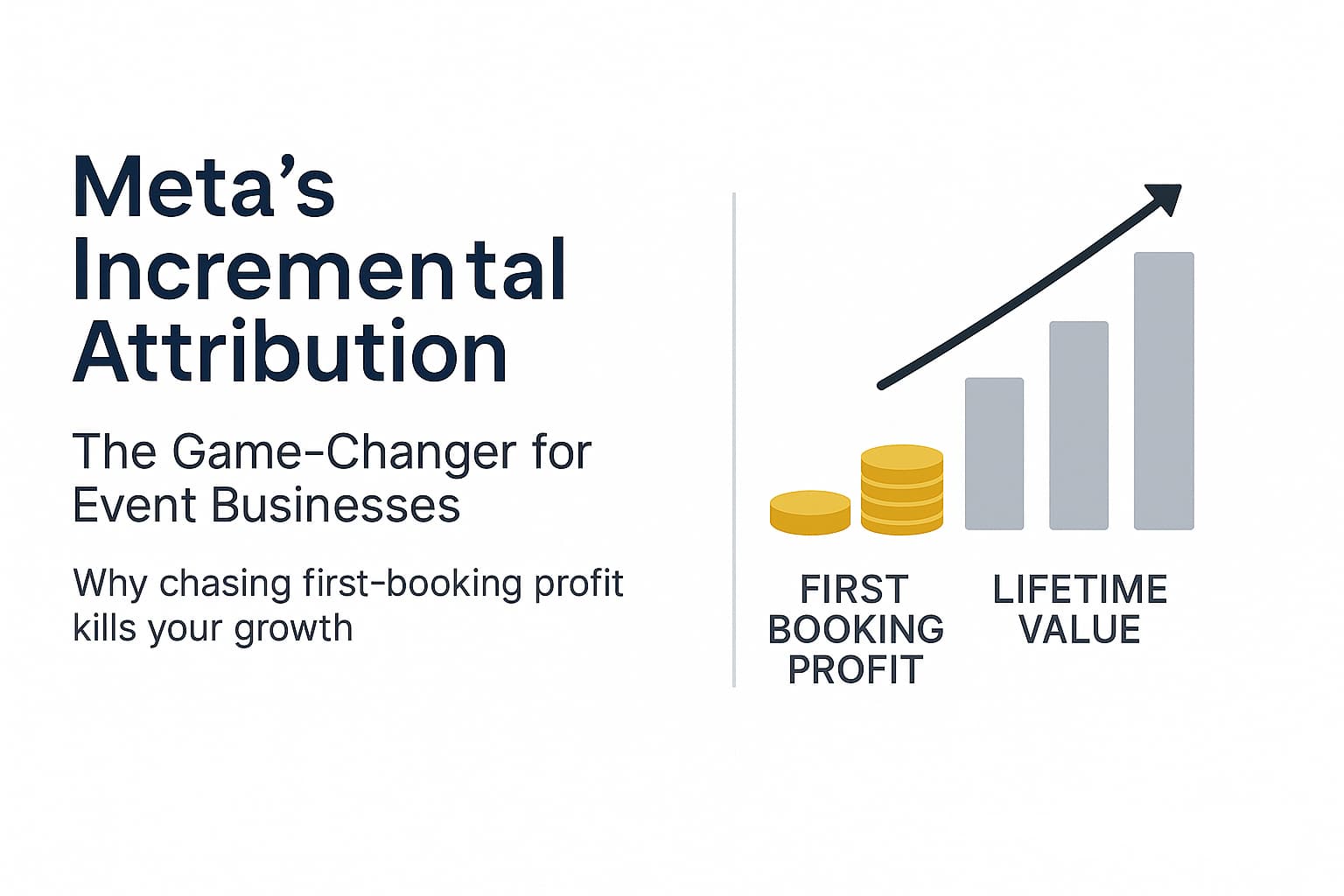
What Is Incremental Attribution (And Why It Matters)
So what exactly is Meta’s incremental attribution?
Traditional attribution asks “which ads drove the sale?” Incremental attribution asks a fundamentally different question: “which customers wouldn’t have bought without seeing my ads?”
The difference is massive.
Old way: Someone was already planning to book you, clicked your ad, and Meta takes 100% of the credit—even though you’d have gotten that booking anyway.
New way: Meta tries to identify people who genuinely wouldn’t have booked without your marketing. It’s measuring actual impact, not just taking credit for inevitable conversions.
This is a game-changer for event businesses, and here’s why: it aligns almost perfectly with how we measure marketing effectiveness for our clients using W-shaped attribution.
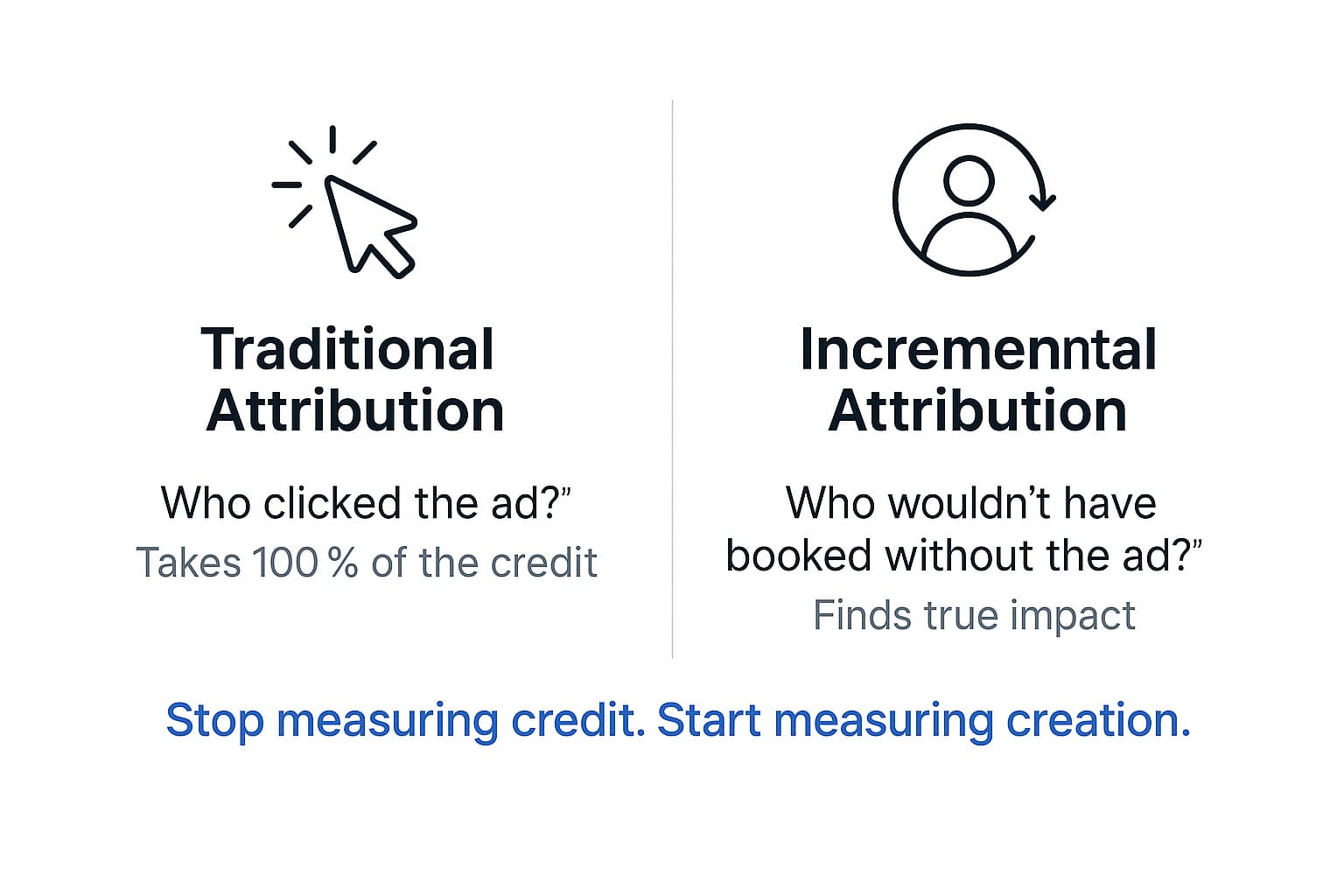
The W-Shaped Attribution Model for Event Marketing
W-shaped attribution spreads credit across the customer journey:
- 30% to first touch—whatever made them aware of you
- 30% to lead creation—when they express genuine interest
- 30% to opportunity creation—when they’re qualified and ready to book
- 10% distributed across supporting touchpoints
Why does this matter? Because event clients need an average of 14.8 touchpoints before they book.
No single interaction “caused” the booking. It’s the cumulative effect of multiple touches building trust over time.
Meta’s incremental attribution is essentially saying: “Stop giving all credit to the last click. Let’s measure whether we’re actually creating new customers, not just taking credit for people who were buying anyway.”
That’s exactly what proper attribution modeling does. And this is where infrastructure becomes absolutely critical.
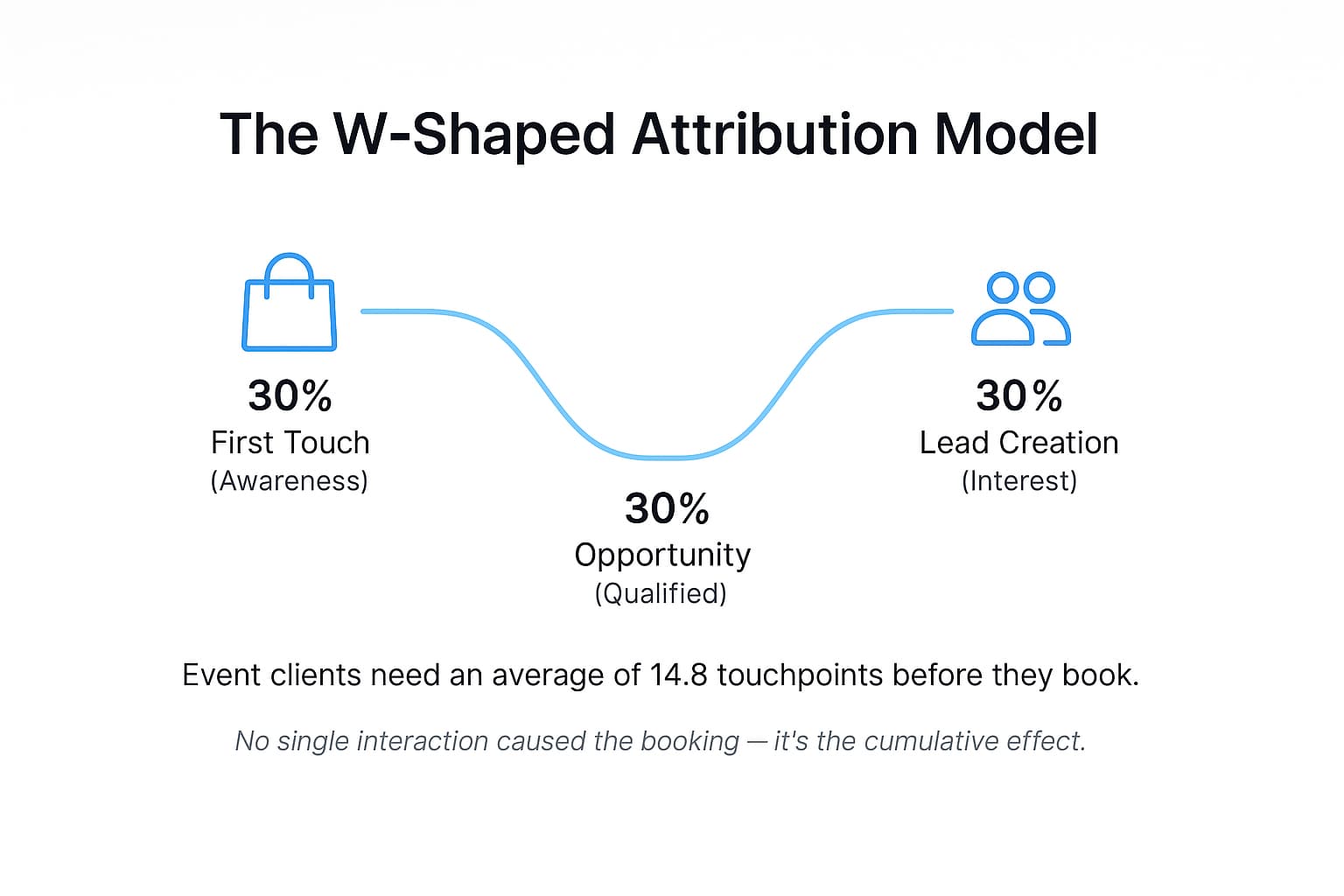
The Infrastructure Foundation Most Event Businesses Are Missing
Here’s what most event businesses miss: you can’t just flip on incremental attribution and expect magic.
You need the right foundation first.
This is why with every client at Codarity, we implement two things from day one:
First-Party Attribution Tracking
Meta’s data is useful but fundamentally incomplete. iOS privacy changes killed significant tracking capability. Cookie restrictions limit what platforms can see. Meta can’t track phone calls or email inquiries that happen outside their platform.
First-party tracking means you own the data. You see the complete journey—from first ad click to website visits to email opens to consultation bookings to signed contracts to repeat bookings to referrals.
This isn’t just better for privacy compliance (though it is). It’s better for understanding what actually drives results in your specific business.
CRM with Lifetime Value Tracking
Most event businesses are trying to run Meta ads while tracking conversions in a spreadsheet. Or worse, not tracking properly at all.
We set up every client with a proper CRM system (we use GoHighLevel) that tracks:
- Where every lead came from
- Every interaction they’ve had with your business
- First booking value
- Repeat booking rates over time
- Referral tracking and attribution
- Actual lifetime value by acquisition source
Why does this infrastructure matter so much? Because Meta’s algorithm is only as smart as the data you feed it.
If you’re only telling Meta “this person booked,” you’re missing the entire picture.
But if you can feed it data showing “this customer not only booked, but came back three more times and referred two other high-value clients,” now Meta can learn to find more people like that.
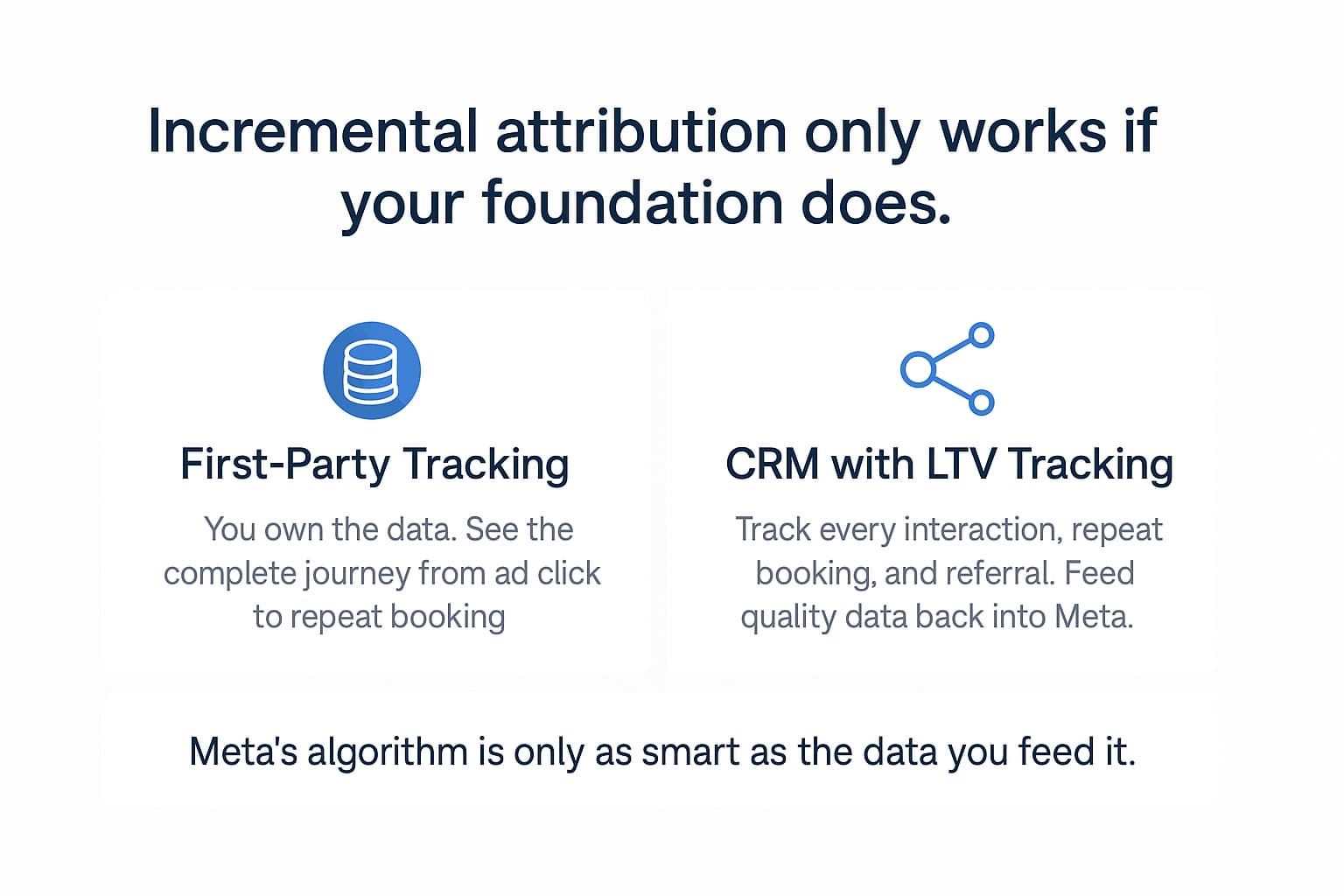
ROAS vs Real Profitability
Here’s another critical distinction: we’re focused on profitability and scaling, not just ROAS.
ROAS (Return on Ad Spend) is a vanity metric for event businesses.
You can have amazing ROAS and still be broke. How? By attracting cheap one-time buyers who never come back.
Real profitability in event businesses comes from:
- Client lifetime value
- Repeat booking rates
- Referral value from satisfied clients
- Actual profit margins (not just revenue)
This is why our W-shaped attribution model matters so much. It shows you which marketing channels are bringing in clients who actually stick around.
Let’s say you’re running both Google Ads and Meta Ads. Your Google Ads have a lower ROAS but bring in clients who book an average of four times. Your Meta Ads have higher ROAS but bring mostly one-time clients.
If you’re only looking at ROAS, you’d kill Google Ads and scale Meta. But if you’re tracking lifetime value with proper attribution, you’d see Google Ads are actually more profitable long-term.
This is the kind of insight you get when you have first-party tracking and CRM infrastructure in place.
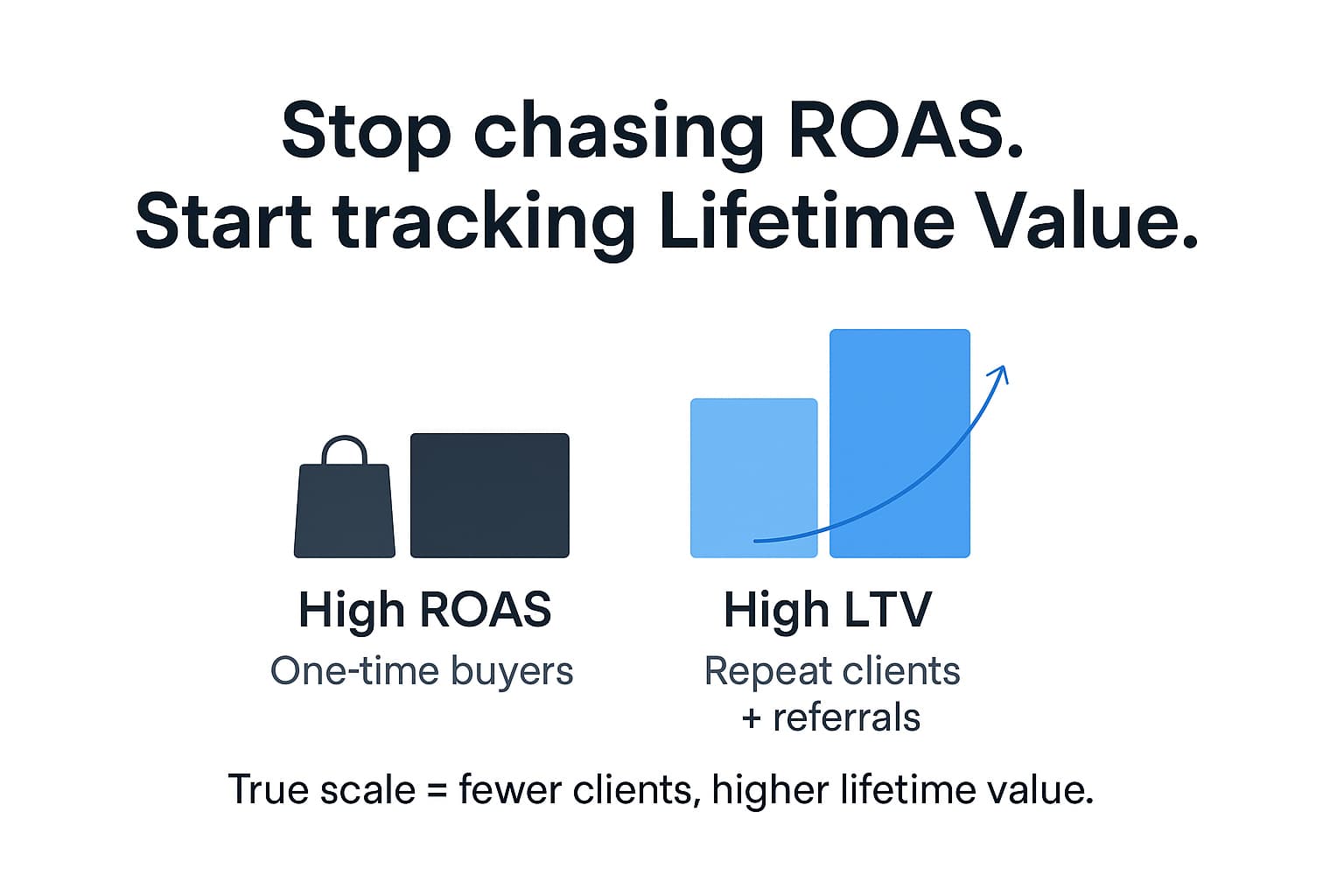
The Reality Check: Your Numbers Will Look Worse (At First)
Here’s what nobody likes to hear, but it’s critical you understand: When you shift from optimizing for first-order profit to lifetime value, your short-term numbers will look worse.
Your cost per acquisition goes up. Your immediate ROAS drops. If you have a finance person, they’re going to ask questions.
This is normal. This is expected.
Because you’re fishing in a different pond now. You’re attracting clients who take longer to convert, cost more to acquire upfront, but are worth significantly more over their lifetime with your business.
Think about it: Would you rather have 100 clients who book once and disappear, or 30 clients who book repeatedly and refer others?
The second group costs more to acquire. But they’re worth 5-10x more to your business over time.
This is especially true in events because of how relationship-driven our industry is. Your best clients don’t just book events—they become advocates. They refer colleagues in their network. They book multiple event types. They increase their budgets over time as trust builds.
But if your Meta ads are optimized to find the cheapest fastest converters, you’ll never build that valuable client base.
And when Meta’s incremental attribution feature is fully mature—likely by spring 2026 based on typical rollout timelines—you’ll be positioned to leverage it properly because you already have the measurement infrastructure working.
The Path Forward for Event Businesses
If you’re running Meta ads right now and the numbers don’t seem to work, ask yourself these questions:
- Am I optimizing for first-order profit, or lifetime value?
- Am I tracking just one booking, or the complete client relationship?
- Do I even have the infrastructure to measure lifetime value properly?
- Is my CRM feeding quality data back to Meta’s algorithm?
That shift in perspective—from transactional to relational thinking, backed by proper measurement infrastructure—is what separates event businesses that struggle to scale from those that build sustainable, profitable growth.
Ready to Implement Lifetime Value Optimization?
If you want help implementing first-party attribution, proper CRM infrastructure, and lifetime value tracking in your event business, that’s exactly what we do with the Evergreen Event Profit System.
We set up the foundation. We implement the tracking. We optimize for actual profitability, not vanity metrics. And we position you to take advantage of features like Meta’s incremental attribution when they’re ready for prime time.
Book a strategy call to discuss your specific situation. We’ll walk through your current numbers, identify infrastructure gaps, and show you exactly where your marketing is leaving money on the table.
Because the goal isn’t just more bookings—it’s the right bookings from clients who stick around, measured properly so you can scale with confidence.
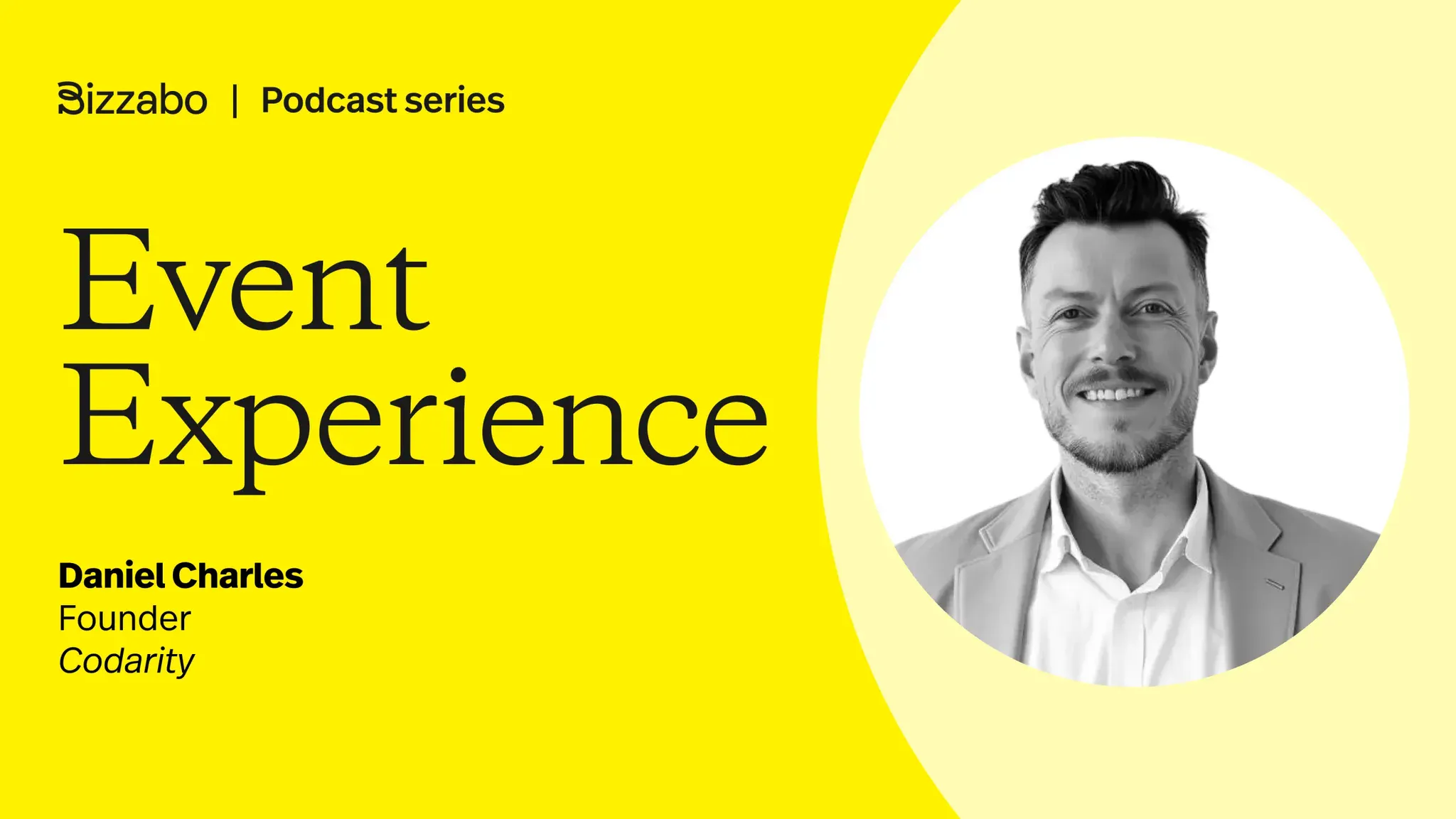
Behind the Podcast: What Event Businesses Really Need to Break the Feast-or-Famine Cycle
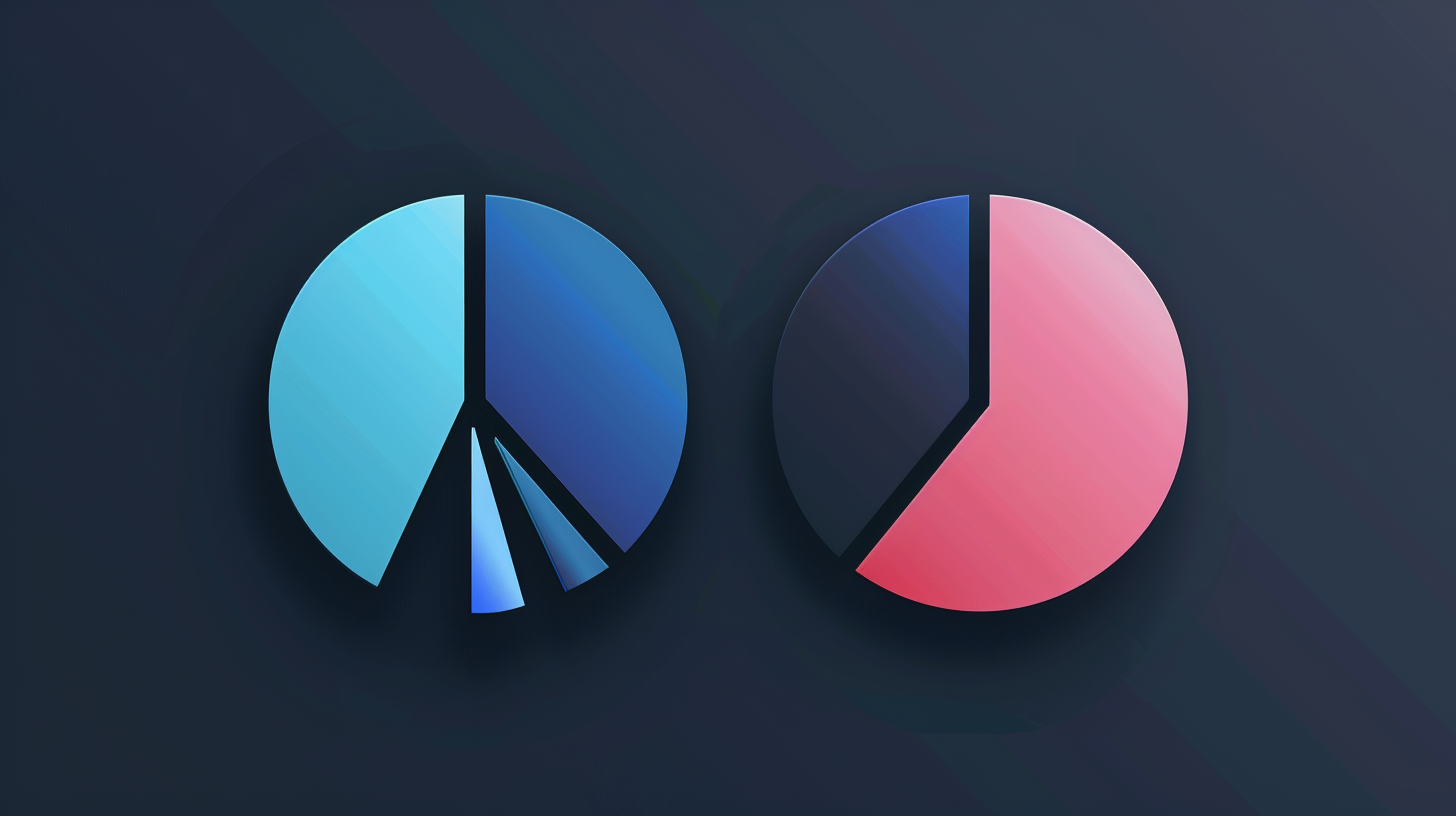
The Real AI Revolution in Events Isn’t What Cvent’s Selling

Why Your Event Business Doesn’t Need More Martech: It Needs a Coherent Message


